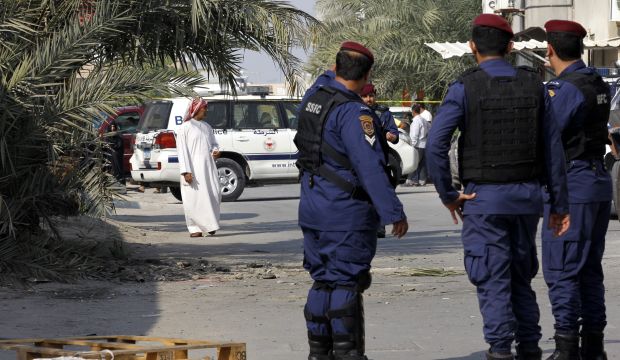
Policemen stand at the scene of bombing in Karzakan village, north of Bahrain, on December 9, 2014.(EPA/STR)
Political tensions have been running high in Bahrain, which has a Shi’ite majority population but whose rulers are Sunni Muslims, since the opposition boycotted elections last month.
The ministry called Tuesday’s attack a “terrorist explosion” and said police were on the scene of the blast in a village southwest of the capital Manama. Bahrain’s largest Shi’ite opposition group, Al-Wefaq, condemned the attack.
On Monday, a Jordanian officer on a security exchange program in Bahrain was killed in the village of Damistan, also southwest of Manama, Bahrain’s interior ministry website said.
Corporal Ali Mohammed Ali was killed on duty by a locally-made remote-controlled bomb, the ministry said. Bahrain’s foreign minister has described the incident as a terrorist attack using a bomb made by Lebanese Shi’ite Muslim militant group Hezbollah.
Since 2011, protests have erupted sporadically in the island kingdom and there have been a growing number of attacks using explosives. Two policemen were wounded last month by a bomb in a Shi’ite village west of Manama.
In November the opposition boycotted parliamentary elections, complaining changes to voting districts would favor the Sunni Muslim minority represented by the ruling family.
Gulf leaders meeting in the Qatari capital Doha on Tuesday are expected to discuss security issues in a region badly shaken by sectarian bloodshed, though the energy-rich Sunni Gulf monarchies have been largely spared.
